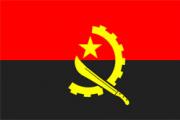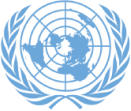SECURITY COUNCIL
OPEN DEBATE
MAINTENANCE OF INTERNATIONAL PEACE AND SECURITY: PREVENTION AND RESOLUTION OF CONFLICTS IN THE GREAT LAKES REGION
21 MARCH 2016
STATEMENT BY HE GEORGES CHIKOTI
MINISTER OF EXTERNAL RELATIONS OF THE REPUBLIC OF ANGOLA
His Excellency the Secretary-General
Members of the Security Council
Distinguished Guests
I am very honored to preside over this Debate, and on behalf of the President of the Republic of Angola and President of the International Conference of the Great Lakes Region, H. E. Jose Eduardo dos Santos, I will share with you some ideas on the subject matter under consideration: the prevention and resolution of conflicts in the Great Lakes Region.
I welcome the Secretary-General's presence and participation in this session, which translates his commitment on an issue that has been the object of his permanent efforts, in finding solutions to the inextricable conflicts that for too long have been plaguing the Region.
I equally welcome the participation of the African Union Commissioner for Peace and Security, Mr. Smail Chergui; the UN Secretary General Special Envoy for the Great Lakes Region, Mr. Saidi Djinnit, and of Mr Vijay Pillai, in representation of the World Bank.
The Great Lakes Region faces many challenges and is going through a great stress. The high levels of economic growth in the Region have not resulted in broad-based development and tangible improvements on the wellbeing of the region´s citizens. Poverty, inequality, inequity are commonplace, fueling social tension and unrest, shattering social cohesion.
Pockets of deadly conflicts, still persist: their causes revolve around economic, institutional, regional and global geopolitical factors, which have been extremely costly in socio-economic and human terms, engendering a vicious cycle of violence.
The nexus between natural resources and conflicts are paramount in formulating adequate responses and mitigating measures.
In this regard, the eastern part of DRC, with one of the greatest concentration of precious minerals and metals poses a multi-dimensional challenge to economic and human development to the affected countries and to the region as a whole.
The need arises to put the Great Lakes Region back on a path of sustainable development: strong leadership, political will, working institutions, and state building are key for ensuring the effective participation of citizens and the communities in socio-economic and political choices, decentralization of service providers, transparency in public sector and finance management. Sustaining peace is an important objective to be achieved through open dialogue among all parties concerned.
My country, Angola, has been deploying sustained efforts to contribute to this endeavor. The African Union, the International Conference of the Great Lakes Region, the East Africa Economic Community and other sub-regional arrangements should provide the required support.
Integrity and genuine involvement of all internal stakeholders, combined with the commitment by external partners in implementing regional related projects, based on a shared long-term vision and on the expectations of beneficiary populations, are a crucial part of this equation.
Distinguished Secretary-General
Members of the Security Council
The objective of Angola, in holding this Debate, is to shift the traditional narrative focused on armed conflict, the plundering of resources, egregious violations of human rights, and the general incapacity to find sustainable solutions to the problems affecting the Region.
The drivers of conflict are well identified: our aim is to have a forward looking approach by identifying “game changers”, permitting the transformation of these drivers of conflict into drivers of peace and social and economic development.
In this regard, we warmly welcome the launching of the Great Lakes Regional Strategic Framework, in support of the implementation of the Peace, Security and Cooperation Framework for the Democratic Republic of Congo and the Region, which establishes a clear link between peace, security and development, and commits to strengthening regional cooperation and the deepening of regional integration.
The Road Map set up in the Regional Strategic Framework establishes nine priorities for regional action, which Angola fully shares:
- efforts in neutralizing the negative forces;
- building confidence measures;
- promote correct electoral processes;
- strengthen PSC oversight mechanisms;
- address the issue of Rwandan refugees;
- promote socio-economic development and regional integration;
- initiatives to mobilize women, youth and civil society;
- fight impunity, improve accountability and strengthen the rule of law;
- lead and coordinate international community support to the implementation of the Peace, Security and Cooperation Framework.
Distinguished Secretary-General,
Members of the Council,
The Eastern part of the African continent, which comprises the Great Lakes Region, is one of the fastest growing economic regions in the world, with a 6.2 % growth rate in 2015.
A meaningful part of the growth is driven by endogenous and potentially sustainable structural factors namely, rising demographics, the youth prominence, a growing middle class with increasing purchasing power, rapid urbanisation and growing infrastructure needs, as well as an expanding intra-Africa trade.
In addition, the Great Lakes Region has shown a certain degree of resilience, taking into account that a significant part of the Region's exports are linked to commodities, subject to falling prices.
Besides, the Region is one of the most densely populated areas in Africa, and investments are needed to make this potentially huge market a demographic dividend.
The Great Lakes Region rich natural endowments, especially mineral and metal resources, water for irrigation and hydroelectric power generation, arable land and population size are important structural factors on which to base the integrated development of the region.
The Economic Commission for Africa report on Conflicts in the DRC: Causes, Impact and Implications for the Great Lakes Region defines regional integration as a crucial developmental link, with regional integration as a leverage for peace building and post-conflict reconstruction.
To realize such potential, the human capital base and infrastructure need to be upgraded, in addition to the quality and capacity of its institutions, the legal and regulatory frameworks, the levels of transparency and accountability, the depth of social and political debate, consultation and collaboration.
In this regard the ICGLR Regional Initiative Against the Illegal Exploitation of Natural Resources (RINR) is one concrete instance of concerted action towards such endeavour, calling for redoubled efforts and extended support to ICGLR and to the RINR. The Kimberley process was a landmark initiative in this direction.
Distinguished Secretary General
Members of the Council
The Kinshasa Conference on the Great Lakes Region's Private Sector Investment, held on 24-25 February 2016 represents a key milestone in this process, and I am confident that its outcomes will serve as a canvas to implement most of these required actions.
The Investment Conference indicates that the region is ready to champion a vision of long-lasting peace and prosperity, and to welcome responsible and sustainable long-term investments in line with the Framework of Hope, The Peace, Security and Cooperation Framework for the Democratic Republic of Congo and the Region.
The Framework emphasizes the importance of 'shared responsibility' where peace, security and socio-economic progress are the 'responsibility of all', citizens and institutions within and outside the Great Lakes Region.
It is therefore our duty to ensure that we deliver on the promises for a brighter future, embedded in the outcomes of the Investment Conference.
Through his words at the Conference, Secretary General Ban Ki-moon is indeed urging all of us to act when he said and I quote "The people of the Great Lakes Region count on you to fully contribute to the goal of transforming the region. It is the pathway to peace and stability." End of quote.
Our key role, as members of the international community, is to ensure that these positive changes are sustained and transformed in permanent gains.
I strongly believe that the Great Lakes Region has everything required to for a new destiny and follow an equitable and sustainable development pathway.
Finally, I hope that I provided some insights as a contribution to our debate in this Council and I thank you for your kind attention.


